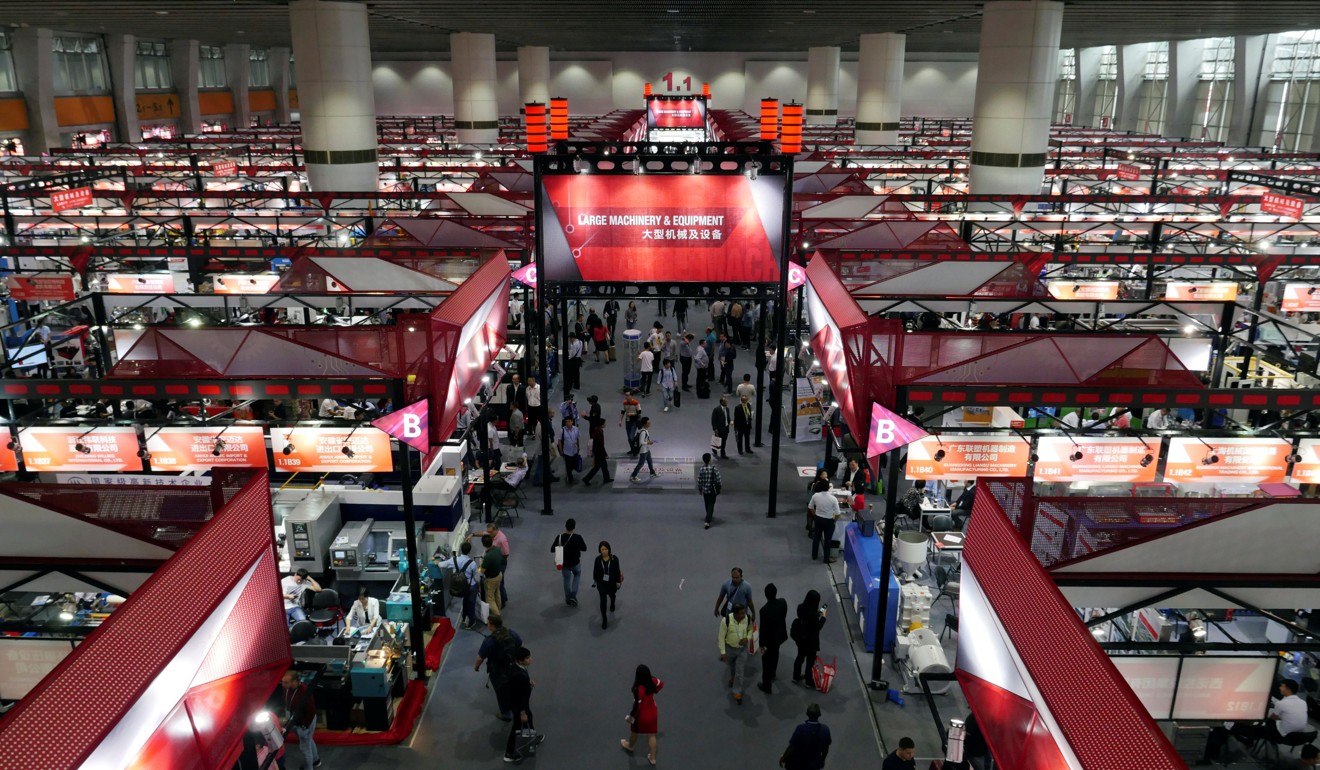
Get ready for a trade deficit, China, top economist warns
The country’s export-led growth model is unsustainable and expanding imports will be a big part of China becoming a global power, academic tells SCMP China Conference
China might face a trade deficit in the next five to 10 years as the world’s second-biggest economy ramps up imports, according to a former leading adviser to the country’s top economic planning agency.
Zhang Yansheng, former secretary general of an academic committee at the National Development and Reform Commission, told the SCMP China Conference on Thursday that China could no longer rely on exports to expand its economy as it had done over the past 30 years, because it was unsustainable and would put too much strain on ties with the rest of the world, especially as protectionism grew.
“The next stage is an open economy that focuses on a balance of trade,” he said. “Expanding imports is a very significant part of China becoming a big global power.”
For now, China still has a trade surplus in goods and a deficit in services. In the first 1 months of last year, China’s trade surplus in goods fell 16.7 per cent to 2.56 trillion yuan (US$393.2 billion), with imports rising by 20.9 per cent and exports up 11.6 per cent year on year, according to the General Administration of Customs.

Zhang, now an adjunct professor at Renmin University, said the trade structure would change over the next decade as the government continued to cut tariffs on imported goods.
Unlike traditional manufacturing where more than 70 per cent of the sector is owned by private and foreign investors, China’s service sector is still dominated by state-owned enterprises, including the medical industry where 90 per cent of operators are still state-owned.
“The goods surplus will shrink and the service deficit will increase. The rebalancing of trade will accelerate, and even cause a deficit. Beijing needs to think about how to manage a trade deficit and how to manage the finances,” he said. “China’s balance of payments will have a very new structure as Beijing encourages imports and outbound investment in the real economy.”
Zhang said more capital and investment could flow in from overseas over the next decade as China opened up its service sector and continued to grow faster than the US.
He said there were many parallels between investment conditions now in China and in the 1980s when major market-oriented reforms were needed to bring in foreign investment.
For example, much of the country’s service sector continued to be controlled by the state, including the medical industry where 90 per cent of operators were still state-owned.

Last year, Chinese President Xi Jinping said Shanghai would host the first China International Import Expo, a trade fair organised by the Ministry of Commerce, in November 2018. Zhang said the expo could be as influential as the Canton trade fair set up decades ago in Guangzhou to boost exports.
He said the central government would not set a growth target for this year when national legislators and political advisers met for their annual gathering in Beijing in March, even though they might have an expected target.
At the Communist Party’s five-yearly national congress last year, Xi stressed the need for quality growth rather than rapid expansion.

